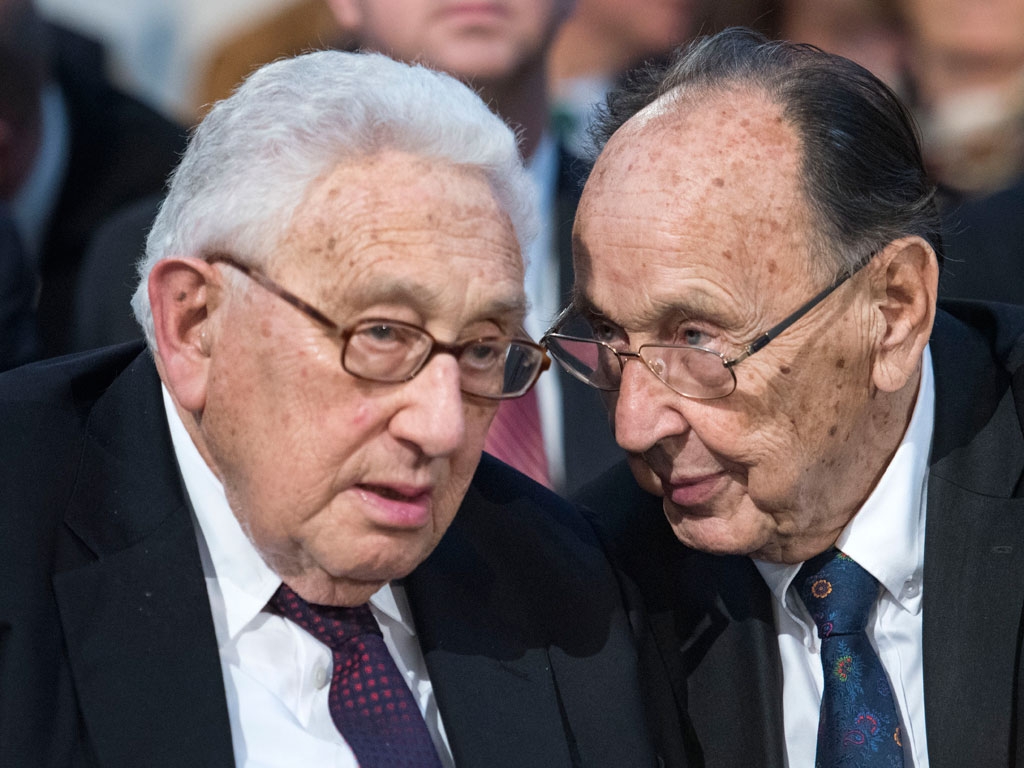Russia is an important part of the international system: Kissinger
 11:04, 30 January 2015
11:04, 30 January 2015YEREVAN, JANUARY 30, ARMENPRESS. We have to remember that Russia is an important part of the international system, and therefore useful in solving all sorts of other crises, for example in the agreement on nuclear proliferation with Iran or over Syria. As reports “Armenpress”, Henry Kissinger stated this in an interview to Der Spiegel.
Kissinger recently published his 17th book, a work with the not exactly modest title "World Order." When preparing to sit down with us for an interview, he asked that "world order" be the topic. Despite his German roots and the fact that he reads DER SPIEGEL each week on his iPad, Kissinger prefers to speak in English. After 90 minutes together in New York, Kissinger says he's risked his neck with everything he's told us. But of course, a man like Kissinger knows precisely what he does and doesn't want to say.
Among other things, Kissinger noted: “On the one hand it is important that Ukraine remain an independent state, and it should have the right to economic and commercial associations of its choice. But I don't think it's a law of nature that every state must have the right to be an ally in the frame work of NATO. You and I know that NATO will never vote unanimously for the entry of Ukraine.
But I do have a number of problems with the sanctions. When we talk about a global economy and then use sanctions within the global economy, then the temptation will be that big countries thinking of their future will try to protect themselves against potential dangers, and as they do, they will create a mercantilist global economy. And I have a particular problem with this idea of personal sanctions. And I'll tell you why. We publish a list of people who are sanctioned. So then, when the time comes to lift the sanctions, what are we going to say? "The following four people are now free of sanctions, and the other four are not." Why those four? I think one should always, when one starts something, think what one wants to achieve and how it should end. How does it end?
I think a resumption of the Cold War would be a historic tragedy. If a conflict is avoidable, on a basis reflecting morality and security, one should try to avoid it.”
Crimea is a symptom, not a cause. Furthermore, Crimea is a special case. Ukraine was part of Russia for a long time. You can't accept the principle that any country can just change the borders and take a province of another country. But if the West is honest with itself, it has to admit that there were mistakes on its side. The annexation of Crimea was not a move toward global conquest. It was not Hitler moving into Czechoslovakia.”
Henry Kissinger seems more youthful than his 91 years. He is focused and affable, but also guarded, ready at any time to defend himself or brusquely deflect overly critical questions. That, of course, should come as no surprise. While his intellect is widely respected, his political legacy is controversial. Over the years, repeated attempts have been made to try him for war crimes.
From 1969 to 1977, Kissinger served under President Richard Nixon and Gerald Ford, first as national security advisor and then as secretary of state. In those roles, he also carried partial responsibility for the napalm bombings in Vietnam, Cambodia and Laos the killed or maimed tens of thousands of civilians. Kissinger also backed the putsch against Salvador Allende in Chile and is accused of having had knowledge of CIA murder plots. Documents declassified just a few weeks ago show that Kissinger had drawn up secret plans to launch air strikes against Cuba. The idea got scrapped after Democrat Jimmy Carter was elected in 1976.
Nevertheless, Kissinger remains a man whose presence is often welcome in the White House, where he continues to advise presidents and secretaries of state to this day.
Little in Kissinger's early years hinted at his future meteoric rise in American politics. Born as Heinz Alfred Kissinger in Fürth, Germany in 1923, his Jewish family would later flee to the United States in 1938. After World War II, Kissinger went to Germany to assist in finding former members of the Gestapo. He later studied political science and became a professor at Harvard at the age of 40.
Kissinger recently published his 17th book, a work with the not exactly modest title "World Order." When preparing to sit down with us for an interview, he asked that "world order" be the topic. Despite his German roots and the fact that he reads DER SPIEGEL each week on his iPad, Kissinger prefers to speak in English. After 90 minutes together in New York, Kissinger says he's risked his neck with everything he's told us. But of course, a man like Kissinger knows precisely what he does and doesn't want to say.




















